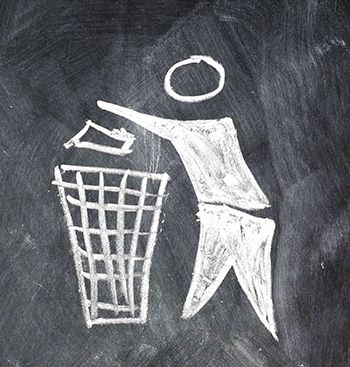THE SRI LANKA STORY
WANTED FIRST-CLASS CITIZENS
Tharindra Gooneratne says it is time for a sociological revolution
Harvey Firestone once said that “the growth and development of people is the highest calling of leadership.” And to this day, his advice remains universally applicable – from leading a small business with 20 employees to governing a country that’s home to nearly 21 million people.
 Just as a corporation cannot simply rely on superior technology to compensate for subpar employees, a country cannot forge its road to prosperity based purely on first-class infrastructure; it also needs first-class behaviour on the part of the citizenry.
Just as a corporation cannot simply rely on superior technology to compensate for subpar employees, a country cannot forge its road to prosperity based purely on first-class infrastructure; it also needs first-class behaviour on the part of the citizenry.
Governments differ in their approach to ensuring such first-class behaviour.
As The Guardian notes, a conviction for littering in Singapore can result in a fine of up to US$ 5,000 while a repeat offender may be asked to wear a sign that states: ‘I am a litter lout.’
This approach contrasts with that taken by Rwanda’s capital Kigali, which is touted by many as being Africa’s cleanest city.
In Kigali, the principle of umuganda requires the entire community to allocate the last Saturday of every month for mandatory community service, which includes picking up litter and participating in urban beautification projects.
Last year’s tragedy in Meethotamulla where one man’s trash became another man’s death sentence was an eye-opener on the garbage problem facing our land.
The government’s initial reaction was to assure that garbage would not be dumped in Meethotamulla anymore but would instead be shifted to two temporary sites. However, this is a stopgap measure at best. The only sustainable solution to Sri Lanka’s garbage problem is to create a behavioural change among the citizens through a combination of education, community led initiatives and the imposition of hefty penalties on wrongdoers.
Another aspect in urgent need of a behavioural revolution is our attitude towards driving in general and obeying road rules specifically.
A blatant disregard for road rules has been a major contributor to the escalating traffic crisis in Colombo. In 2016, the Finance Ministry reported that the average speed of a vehicle in Colombo was 8 kmph and this was expected to drop to 6 kmph by 2020. Even more appallingly, there were 3,101 deaths in Sri Lanka due to road accidents last year, which is the equivalent of eight deaths a day.
One obvious solution to this problem is more stringent law enforcement.
An important step was taken in this regard recently when a proposal to introduce a demerit points system and substantially increase fines for several traffic offences was tabled.
But in both cases, the inevitable occurred and implementation was delayed due to protests by private bus owners and three-wheeler associations.
It is mind-boggling that the first time the Department of Motor Traffic mooted a proposal to introduce a demerit points system was back in 2009.
Even if implemented, increased fines and a demerit points system will not lead to a meaningful change unless specific plans are also implemented to tackle bribery. In a recent interview with the Daily News, the President of the Ceylon Motorcyclists’ Association revealed that in 2016, the amount paid in bribes could have been around Rs. 3.2 billion compared to the revenue from traffic fines of only 2.2 billion rupees.
In addition to these behavioural problems, there are several others such as discrimination and oppression faced by women that need to be addressed urgently. In this case, we should ensure that punishments against wrongdoers are swift and severe, whilst also focussing on other solutions such as promoting mixed gender education and publishing a ranking of companies based on a gender scorecard.
It is beyond debate that we cannot move forward as a nation unless we accept our behavioural weaknesses and tackle them head-on. A progressive Sri Lanka is the only path to prosperity.






Yes
Policies, procedures, ploys. Sri Lanka has, from time to time, applied them or at least copied and implemented them to its whims and fancies. Yet it has lost in the game of a stable prosperity. Why? Because the country, its administrators and its people did not embrace it purposefully, this so called behavioural change and attitude that are a must.
This is a country that does not know how to utilise a common asset – something like a road or sidewalk. The moment you are issued a driving license, you are driving like a herd of cattle, and is this the deserved citizen status and decency of this country? That road or sidewalk seems to be allocated for your selfish interests.
Look at how vehicles wreak havoc across roads, how pedestrians jaywalk at their convenience on congested roads, how unauthorised side vendors make quick sales blocking pavements and how people just stop while they’re walking to leisurely pick up an item or two, blocking the movement of fellow pedestrians.
I cannot agree that these faults are part of unique Sri Lanka. It makes us ponder what these behavioural changes have brought us more than what we lost from them. We need to start changing the behaviour of people first – wilfully and from the bottom of our hearts!